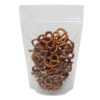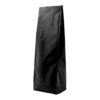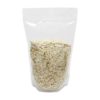Blog
How Natural are Natural Products?
Marketers favor the term ‘natural’ as a selling point for their products. But how much value should consumers place on the term? And what types of legal implications should there be for companies that use the term without any basis? It is used on so many products that it’s become cliched and no one takes it too seriously anymore. This is especially true for those who go so far as to read the label and discover the ugly truth.
FONA International, a flavor manufacturer, is advising that manufacturers should refrain from using the term ‘natural’ in their products. It lends itself to confusion among consumers. The company adds that the last 5 years have seen a 51% drop in new products claiming that they’re ‘all natural’ upon launch. This is due to an upswing in consumer questioning of the validity of such claims.
Consumers are savvier than they’ve ever been before. They don’t take the word of manufacturers at face value anymore. They question more, research more, and think more independently. It’s harder to pull the wool over their eyes than it was 20-30 years ago.
FONA International’s survey among customers revealed some interesting data. 48% of consumers think manufacturers shouldn’t boast their products as natural. They should rather state what aspect of the product is natural.
For example, they can say the product is preservative free. 40% of customers don’t pay any attention to the word ‘natural’ on a product label. 45% said that the word natural prompts them to read the label. They look for the ‘natural’ elements of the product to see if it relates to their personal understanding of the word. This alone can lead to more confusion as definitions of the word natural may vary from one consumer to another.
Legal action is being avoided by manufacturers that are turning away from using the word in their marketing. Many have learned the hard way that claiming your product is natural can lead them down a path that includes litigation, settlements, and the payment of compensation.
The U.S. Food and Drug Administration (FDA) has yet to regulate the definition of the word natural in the context of product manufacture. Their first opportunity was to do so in 1993, but they did not seize it. In fact, they declined to make a ruling and a regulatory definition of natural. Therefore, companies have been able to claim their products are natural without any fear of regulation.
They argue that since the FDA has provided no definition, they have taken it upon themselves to determine their own definition. This has, however, not stopped consumers from suing manufacturers in court for their invalid claims around the natural aspects of their products.
2014 saw General Mills settling a lawsuit regarding claims that their products were natural. They had, in fact, used the term ‘all-natural’ on some of their Nature Valley products. This was not strictly true since some of their products contained high levels of fructose corn syrup or maltodextrin. The settlement agreement bars the company from describing such products as natural.
Diamond Foods also settled a lawsuit in 2015. They had to pay compensation to customers who had bought their Kettle Brand products that claimed to be natural. Customers who were eligible for compensation had bought the product between January 3, 2010, and February 24, 2015.
Consumers have a fair idea of what the word natural means. They feel that, for a product to qualify as natural, it should contain no artificial flavors, colorants, and sweeteners. It should also be free of preservatives. This general consensus of the opinions of consumers was established by a survey of 5,175 consumers from 10 different nations. The survey was conducted by the GNT group.
The terms ‘natural’ and ‘all-natural’ are not the only ones used that are causing confusion among consumers. The words ‘clean’ and ‘healthy’ make claims that are meant to attract buyers. But there is little consensus as to what they mean. Companies using them open themselves to legal action and reprimands from the FDA.
As an example, the 2015 Kind Snacks saga caused much interest among manufacturers. The company was told that using the word ‘healthy’ on their products was misleading. The FDA deemed the saturated fat levels in Kind’s products to be too high to be labeled healthy. Their ruling related to 4 of Kind’s bars. The FDA had a regulatory definition of ‘healthy’ that was largely concerned with saturated fat levels.
In May 2016, the company presented their side of the argument to the FDA and managed to get the ruling reversed. This was after they proved that the fat content of their bars was healthy due to its sources.
The FDA had to admit that the word ‘healthy’ was still ambiguous when it comes to food manufacturing. Its definition was shown by Kind to be outdated and inaccurate. Kind put forward a petition requesting that the organization revisit its definition. It wanted a standardized set of meaningful, scientifically proven criteria placed on the term that products can be measured against.
This has not proven to be an easy task, and the matter is still the topic of much debate. In the interim, the Commissioner of the FDA, Scott Gottlieb, declared that the validity of such claims must be determined on a case-by-case basis. What he was unable to comment on was what the FDA was going to do to come to a consensual definition of the word ‘healthy.’ It would have to be agreed upon by all stakeholders. These include the FDA itself, manufacturers, and customers.
The FDA has, however, determined a definition of the term ‘organic.’ The consumer confidence in this label is much higher than a label that says ‘natural.’ Up to 52% of consumers believe that they can trust a company that claims its products are organic. Perhaps it’s because this term has a specific definition.
The term ‘natural’ continues to be a vague concept that no one can put a defined value on. However, the fact that organic can be defined gives all involved parties hope that ‘natural’ will also get that status.





